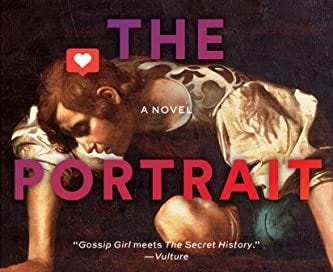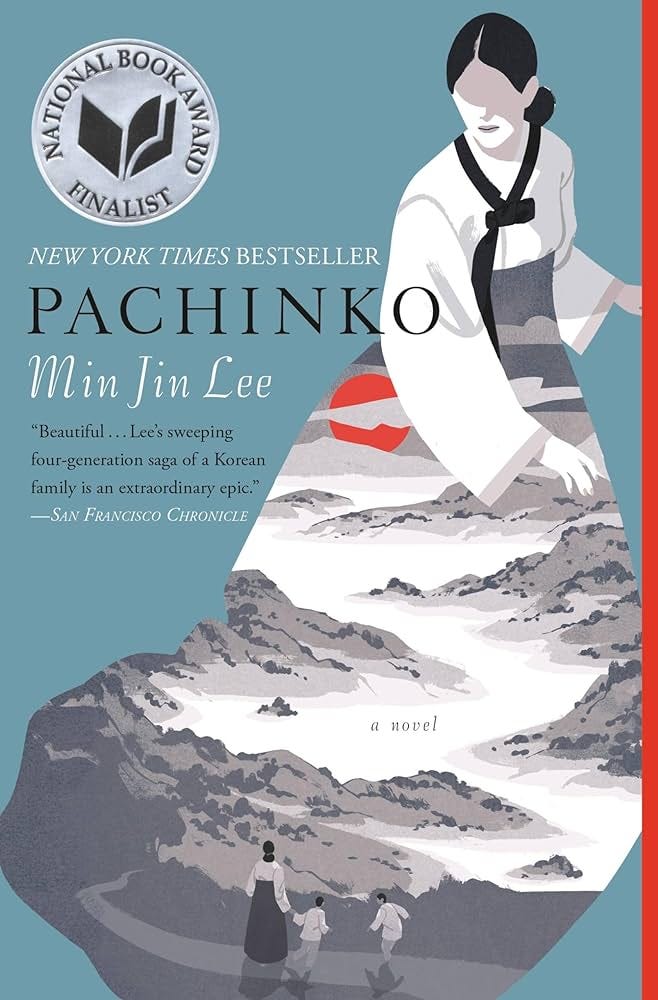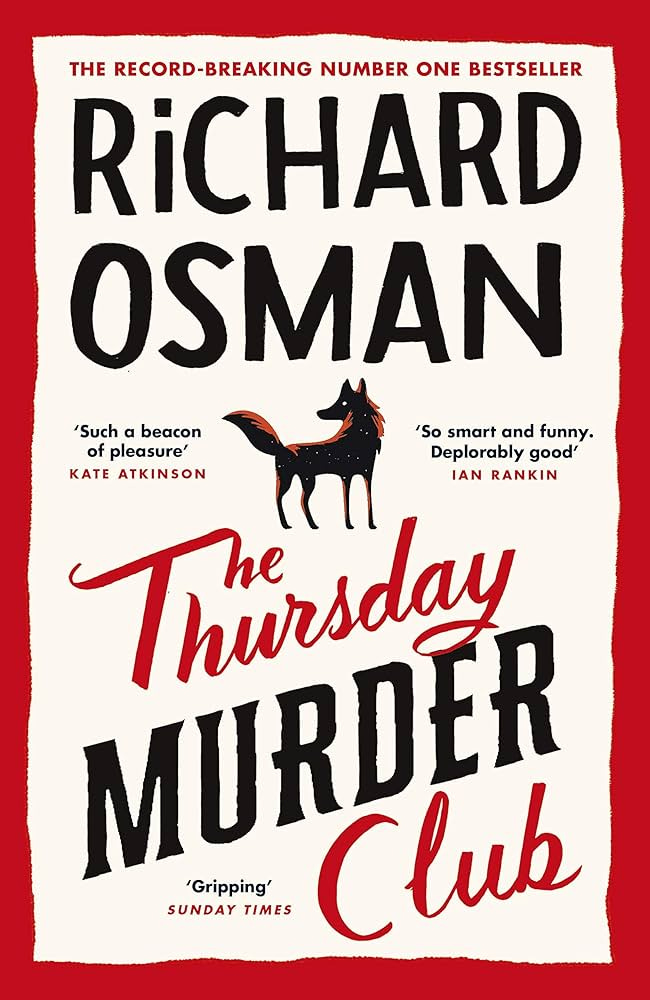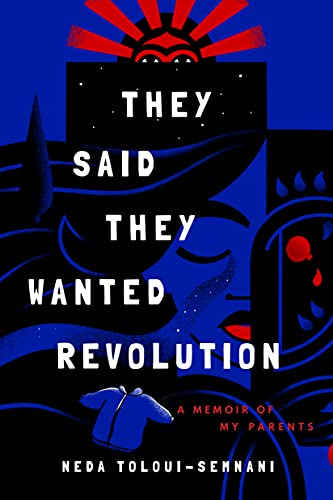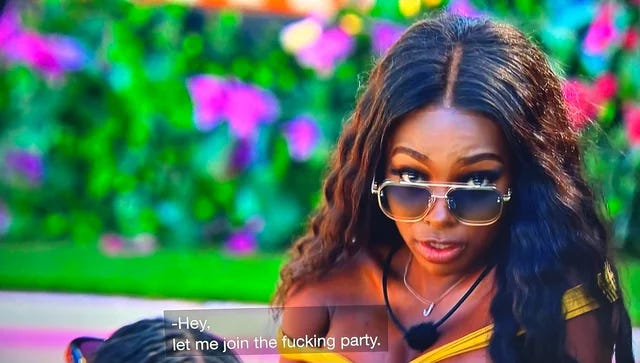one more thing about lists
Since writing you last, the NYT 100 Best Books of the 21st Century wrapped up, and My Brilliant Friend came out as top dog. While I was surprised, and that particular book is definitely not my number one of the century (Story of the Lost Child could be), I’m happy with it as a stand-in for the series as a whole and it is a deserving choice. Elena Ferrante (and her brilliant, if I may, translator Ann Goldstein) did really do something spectacular for the genre of modern literary fiction. My bookstagram friend Sofia raised the good point that it probably landed at number one not because it’s everyone’s number one, but because every critic probably had it on their list as a best book and that sent it to the top. In any case, I’m good with it.
While I’ve only read about 12 books on the list (no no no don’t unsubscribe I swear I’ll be better in 2025), I thought the list itself checked out in terms of the ones I’ve enjoyed and books I know that everyone else loves. There weren’t a ton of picks that really made me angry. So that’s good. I won’t wax on about this one, since everyone else already has, but, you know, fine list. Makes sense.
The Times then polled all their readers for their collective list, and lots more books made the list there that made sense to me. I think this list skewed quite a bit more modern than the critics’ list. The top pick here was Demon Copperhead, which checks out in terms of its critical and commercial popularity. It wasn’t on my list, but I do love it and think it’s deserving of its praise — I was just surprised to see it at the top. Probably the same situation as the critics’ list where everyone voted for it so it went up to number one.
THEN the bookstagrammers came through with their (our) collective list (compiled by surabhi.reading on instagram). The results were closer to the readers’ list than the critics’, which makes sense, because we are all … readers. If there’s one thing I know, it’s that bookstagrammers love to talk about their opinions. And make rankings. Some random thoughts and lukewarm takes on all the lists:
People really love Station Eleven, which was on all three lists. I thought it was good, but not, like, revolutionary. That genre’s not totally for me, I guess, but I think it could have been better — if I recall, I wasn’t particularly attached to any of the characters.
Same with Hamnet! It wasn’t on the critics’ list, but made appearances on both readers’. I just did not care for it. Again, could be a genre preference, but I thought it was tedious.
Detransition, Baby is another one to hit all three lists. No complaints here.
Both Song of Achilles and Circe made appearances on the readers’ lists. Circe was higher on both, I think, which really validates my longstanding belief that Circe’s better (plus it was nearly on my ballot)! I’m glad everyone agrees now.
A massive, colossal oversight on my end was not including Paul Kalanthi’s brilliant and devastating memoir When Breath Becomes Air on my own list. I read it immediately after a close friend passed away from cancer in 2017 and it stuck with me. I am really grateful to the readers’ lists for reminding me of it.
Normal People was on both lists, and while it’s not the one I would have picked to represent Rooney, I still love it and was happy to see it!
Also, Beartown got its flowers on the bookstagrammers’ list, which was another joy for me.
Not much poetry at all! I absolutely adore Ada Limón’s The Hurting Kind and thought to put it on mine, but waffled for probably the same reasons as everyone else — it’s very difficult to pit works of poetry (and short story collections, for that matter) against novels and nonfiction works as they can be such distinct forms of literature. But there are so many worthy works of poetry published over the past several years that should be commended: Time is a Mother; Alive at the End of the World; Things You May Find Hidden in My Ear; Rifqa; and Playlist for the Apocalypse, just to name a few. Perhaps they belong on their own list.
All in all, pretty much every book I listed on my ballot were represented on at least one of the lists. The only ones that didn’t were Bad Feminist and Looking for Alaska (there wasn’t a ton of YA lit represented besides Hunger Games and Harry Potter). In hindsight, I would have swapped one of these out with WBBA, but I do think both of these belong in the conversation in some capacity (particularly Alaska, and I might have gone with my initial desire to put Gay’s short story collection Difficult Women in instead).
Actually, I don’t think Three Women was on any list, either, which is kind of the only omission I have a serious qualm with. I know Lisa Taddeo is controversial, but that is a PHENOMENAL work of nonfiction that I actually think should be required reading for every college student.
reads
After I quit on Pineapple Street (I don’t think I’ve DNF’d a book that harshly in years), my booksta pal Kayla (aka wordingitright give her a follow) recommended that for a fun actual piece of literature on rich people, I should check out The Portrait of a Mirror. So I did! And I loved it!
This book follows two different couples, both of disgusting familial and independent wealth, and their entanglements with one another. It’s very well-written: fast paced but also indulgent, dramatic but also quite funny. You never totally forget how ridiculous the premise is — filthy rich people live in fundamental unhappiness because they married the wrong rich person — but you also get lost in the beats of the story and appreciate how fantastically everything comes together. In that vein, the novel is structured very well; the narrative voices alternate in a way that makes sense and enhance the plot.
There’s no redemption offered or punches pulled on the characters, but I did empathize with them (or at least some of them) at my core. We’re never meant to think that we need to totally sympathize with them, but we simultaneously feel their very human suffering. Money solves basically every problem, but perhaps the stratification of our society does, in some small way, damage the psyches of the 1%. And I actually got really invested in one of the romances, which I did not expect.
I wish it was a touch longer, though I appreciated Joukovsky’s restraint; at the same time, I could have used more of some plot points and more time with certain characters. The climax of the tale is chaotic and generally great, but doesn’t feel entirely earned. And while I understand the frequent references to Narcissus, as this is a retelling in many ways, they feel rather heavy-handed, sometimes interrupting the flow of the tale.
But this is so good and so much fun. If you liked Cleopatra and Frankenstein or Happy Hour or any other youngish New York books of the like, you’ll have a fucking blast with this one. 4.5/5 stars.
Pachinko, Pachinko, Pachinko. What took me so long? I’ve had it on and off from the library for about two years now and couldn’t work up the courage to read it because I knew it would be sad. But after it was placed so highly on all three lists — critics’, readers’, and bookstagrammers’ — I had to take the plunge.
And I am, of course, so glad I did. This novel is worthy of all its praise. It’s a multi-generational epic, following one Korean family’s journey over the years that Korea is annexed by Japan and World War II and its aftermath. To be honest, I didn’t really know anything about this historical period or the subjugation of Koreans at the hands of the Japanese, and I learned quite a bit here.
As expected, it is heartbreaking. I really enjoy Lee’s prose; it is beautiful but simple, never overly flowery or more than it needs to be. Like:
Yet here was the same face—the one she had loved so much. She had loved his face the way she had loved the brightness of the moon and the cold blue water of the sea.
The same goes for the pacing of the plot, which moves smoothly and quickly in a way that feels natural. It is a novel rooted in suffering — indeed, the the central theme and belief that “a woman’s lot is to suffer” is referenced quite often — but we see the happy times, the moments of joy, the beauties and wonders of the world and our relationships scattered throughout.
I grew to love pretty much every character depicted (with a few key exceptions, obviously) and appreciated the subtle differences in their narrative voices. Every character has a slightly different perspective on the world and their struggles at hand and felt well-defined, even some of the minor characters, especially considering the format’s limitations (i.e. we can’t spend too much time with any one character). Many of their actions shocked me, even when I thought I had a grasp on who they were and where things were going. It’s really quite a suspenseful book despite its calm and matter-of-fact demeanor. And, like, an insane page-turner. I started reading it on the beach despite my reservations about it being a beach read, but it fucking hooked me and never let go. I really lost myself in the story.
I guess that by the end, a few plot points and relationships didn’t have me quite as invested as I was throughout the book. And while I did feel connected to the characters in general, I wished for a bit more sometimes. In general, the last 10% or so of the book fell a little tiny bit short of what I wanted, although it DID wrap up perfectly and I DID cry at the very end even though I was on a train. There’s just a tiny something missing for me from the book that I can’t totally identify, though I think it does have to do with deeper character investment.
This is a triumph of a narrative effort and a pretty fucking heavy but excellent read for anyone, especially if you grew up in an immigrant family and/or have similar stories to tell about the sacrifices they’ve made and their sheer will to survive. 4.6/5 stars. Or 4.7. I can’t decide. This is very important because it will determine whether it gets five stars on goodreads or not. If you saw me clicking the star on and off on goodreads several times, no you didn’t and mind your business.
Lots of people have recommended/mentioned The Thursday Murder Club to me over the past few years as a fun read. I’ve heard mixed things, so I jumped in cautiously. It’s a charming premise: a group of elderly people living in a luxury retirement community love to solve mysteries and call themselves The Thursday Murder Club. Gasp, the title!
This is a perfectly fine book. It’s entertaining enough that I was reading it in line at the grocery store, so it certainly has a hook. I had absolutely no idea who committed the ~murder~ (at one point I was stumped enough to think it might even be a Roger Ackroyd situation), which is always fun, as I love to be surprised. I very much enjoyed the book’s highlighting of general police ineptitude and callousness, even if they portray the cops working with them in a nice light. And, overall, despite the heavy topics, it feels very light and is incredibly funny at some points. I’m actually pretty excited for the onscreen version to eventually come out — similarly to a book like The Wisteria Society of Lady Scoundrels (which I love dearly, fuck the haters), the dialogue and narration would absolutely pop the fuck off in a TV series or movie.
At its core, however, the book is nothing more than this: perfectly fine. A perfectly fine, light, entertaining read, but not one that has me champing at the bit for more. Like, if you put the sequel in front of me, I’d read it, and I’m sure I’ll check it out from the library eventually when I want another light read, but I don’t have a particular compulsion to continue on with these characters. As a matter of fact, they really started to grate on my fucking nerves from time to time. Also, there are plot points that feel incredibly disjointed and nothing comes together in the end in a particularly satisfying way, or even in a way that left me wanting more. I just finished it and I was like, okay, I guess that’s how it’s ending.
If you like mysteries, especially those with some quirky narrative flair, there’s a good chance you’ll enjoy this, and I completely understand why some people absolutely love it. You just really have to get into a headspace where you can appreciate the fun aspects and forget the other stuff. 3.5/5 stars.
events!
On August 29th at 8:00 PM ET, I have the great honor of moderating a book talk with Neda Toloui-Semnani, author of They Said They Wanted Revolution, a memoir of her parents’ journey as Iranian revolutionaries. It’s being hosted on Zoom by the National Iranian-American Council (NIAC). I’ll be sure to post more details soon if you’re interested in joining.
other media
I spent pretty much all of last week binging Love Island USA which, I regret to inform you, is far superior to this summer’s failure of a Love Island UK season. I’m generally a UK purist — it boasts some of the finest seasons of reality television ever made and, let’s be honest, the accents and British-isms are part of the fun — but I’d heard this season of USA was different, and, after failing to get into UK this summer, I decided to go for it.
This season was just fucking FUN. It was rarely tedious, with plenty of drama to keep us busy. The friendships between the girlies were incredibly strong; their united front against the boys, all of whom were pretty massive idiots and royally fucked up in one way or another, was pretty beautiful. The post-Casa Amor confrontation is one for the books and perhaps the best of all time since Casa was invented. At the same time, everyone just genuinely seemed to like each other, even with all the drama.
Most importantly, the season was also more diversely cast, so it didn’t feel as ACTIVELY racist as the UK seasons, where you’re almost relieved when fellow women of color leave so you don’t have to see them suffer through rejection anymore (Black women are quite maligned on the show in particular, and in reality TV dating as a whole; this is a great article on it). This season, they cast men who were actually interested in Black women, and two Black women, Serena and JaNa, were the absolute stars of the season, along with my Persian queen Leah Kateb. Of course, we had some idiotic white people throwing around microaggressions at all times, but to see Black women (and people of color — the entire finale was made up of couples of color!) finally uplifted in such a way just felt nice.
I actually think this is one of my favorite LI seasons in general ever across all the franchises. It’s not at the level of a UK season 3 or a season 5 (“HE DOESN’T FUCKIN LOVE YA BABE”), but it is pretty solidly up there.
I would be remiss not to mention that sometime around this date is the one-year anniversary of this Substack. I know I haven’t been as diligent about publishing over the past few months, but trust me when I say this remains one of my favorite endeavors and something I hope to maintain in the coming year even as I go to (shudder) grad school. Speaking of the horrors of grad school, I’m writing a little ditty on the subject that should hopefully be out soon that I think you will enjoy. :)
As a happy one year present to me, I hope you will take the time to donate directly to Palestinians in desperate need of aid. As I’ve said before, I have a highlight on my instagram page of ones I’ve come across; TikTok is also an excellent place to find this information and support creators selling their wares for Palestinian relief. Also, join a protest. And send me whatever resources you’ve been on — places to donate, lists of action items, etc.! Free Palestine forever!

